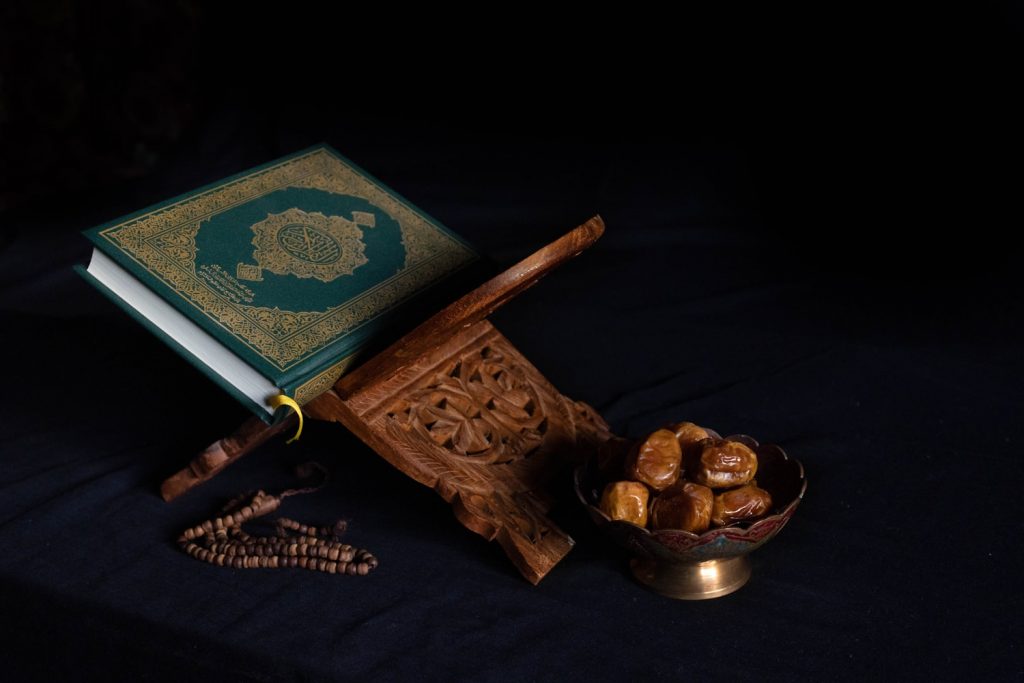Working to improve mutual understanding between the Middle East and the West
Working to improve mutual understanding between the Middle East and the West
No products in the basket.
Fasting is a significant component of Islam and millions of Muslims around the globe are obligated to observe the practice each year for the entire month of Ramadan – the ninth month of the Islamic calendar – from sunrise to sunset. Fasting is meant to bring worshippers closer to God, and it is a time for submission and sacrifice. We forgo our daily meals and donate money and food to nourish the hungry. Optional fasting can be performed throughout the year; yet, the fact that we share the practice in a specific month allows us to develop a cultural habit imbued with religious purpose.
This year’s Ramadan was quite different. Because of the pandemic, Muslims around the world resorted to planning social activities using online platforms. In the UK, we felt the need to gather together in the month of fasting to feel a sense of community and unity. During the lockdown, it came to my attention that UK residents organised virtual iftars which were followed by sermons on spiritual matters. In my home country Egypt, however, thanks to the nice weather during the month of Ramadan, restaurants offered outdoor services where families could enjoy having their iftar in the fresh air. To help diminish the economic burden brought on by the pandemic, charitable originations delivered food to the poor or alternatively provided collection points. It was particularly interesting for me to see how governments in the Arab countries offered opportunities for keeping the taste of Ramadan sweet, while maintaining the rules of social distancing. The Egyptian government, for instance, decided to broadcast the evening prayer on the national TV, so that Muslims were able to watch the prayer and enjoy the recitation of the Quran while remaining in their houses.
In my experience, living in a Muslim-majority country makes fasting less challenging, since we do not feel the need to change our habits during Ramadan. People’s daytime is centred around fasting, and Muslims abstain from eating, drinking and from any sexual activity. In Egypt, the majority of restaurants and coffeeshops are closed during the daytime in Ramadan, and they usually open in the evening when people can eat and drink. Similarly, grocery shops and malls extend their working hours into the night to allow people to buy what they need. Those who work in a government sector benefit from flexible hours during daytime, and are permitted to leave work two hours earlier so that they can rest a little before they break their fast. At night, we gather with our families and friends for iftar meal usually around sunset, and once we have eaten, we gather again in mosques for an evening prayer.
One aspect of the Ramadan experience for Muslims is to donate to charities and help the poor. Many volunteer to prepare ready meals and distribute food. On the streets in Egypt, during iftar, you are most likely to receive a snack or even an invitation to dinner. No one will ask whether you have been fasting or not; if you are religious or not; or which religion you belong to. Over the last few years, both Muslim and Coptic Christian communities have been sharing inter-communal iftar meals during Ramadan. Tables are laid out on streets presenting a variety of food and drinks, and neighbours from diverse faith communities are invited to partake in the iftar meal.

(Photo by Abdullah Arif)
Our work relies on the generous support of our donors. Any contribution, no matter how small, helps us achieve our aims.